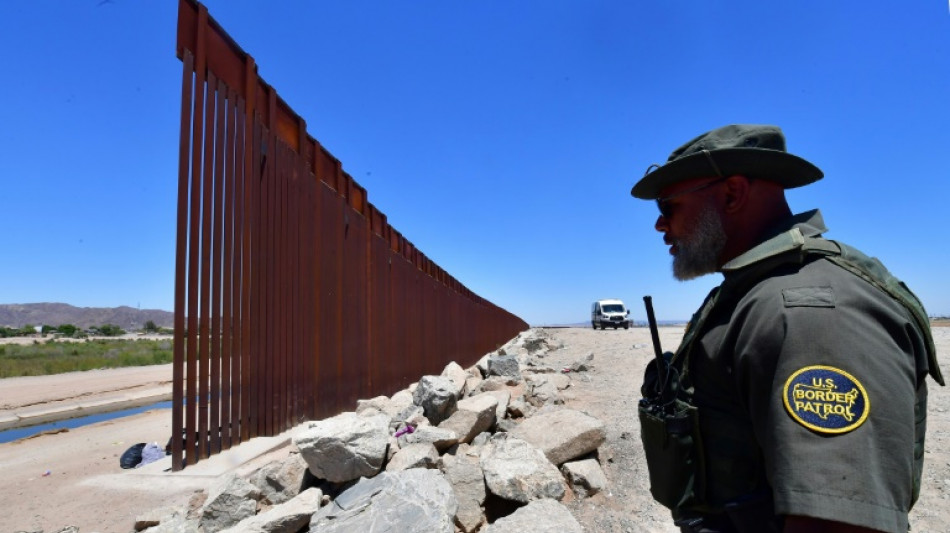
-
 Samsung Electronics posts 22% jump in Q1 net profit
Samsung Electronics posts 22% jump in Q1 net profit
-
Pietro Parolin, career diplomat leading race to be pope
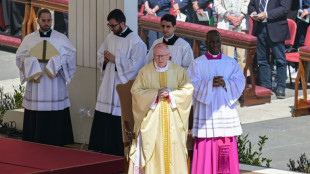
-
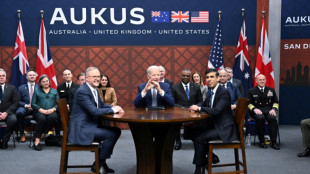 Nuclear submarine deal lurks below surface of Australian election
Nuclear submarine deal lurks below surface of Australian election
-
China's manufacturing shrinks in April as trade war bites
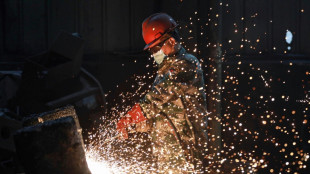
-
 Financial markets may be the last guardrail on Trump
Financial markets may be the last guardrail on Trump
-
Swedish journalist's trial opens in Turkey

-
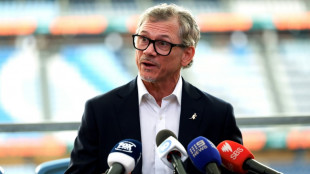 Kiss says 'honour of a lifetime' to coach Wallabies at home World Cup
Kiss says 'honour of a lifetime' to coach Wallabies at home World Cup
-
US growth figure expected to make for tough reading for Trump
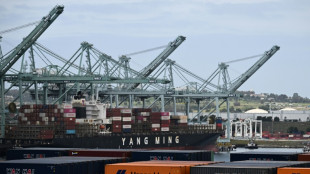
-
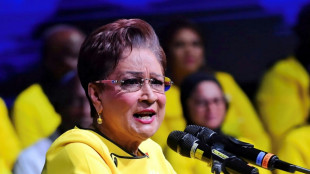 Opposition leader confirmed winner of Trinidad elections
Opposition leader confirmed winner of Trinidad elections
-
Snedeker, Ogilvy to skipper Presidents Cup teams: PGA Tour

-
 Win or bust in Europa League for Amorim's Man Utd
Win or bust in Europa League for Amorim's Man Utd
-
Trump celebrates 100 days in office with campaign-style rally
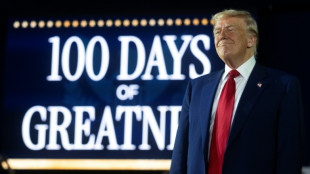
-
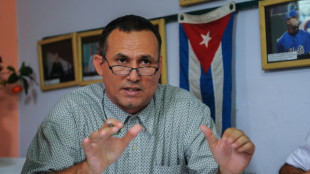 Top Cuban dissidents detained after court revokes parole
Top Cuban dissidents detained after court revokes parole
-
Arteta urges Arsenal to deliver 'special' fightback against PSG

-
 Trump fires Kamala Harris's husband from Holocaust board
Trump fires Kamala Harris's husband from Holocaust board
-
Pakistan says India planning strike as tensions soar over Kashmir attack
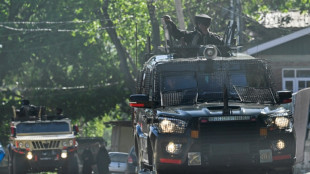
-
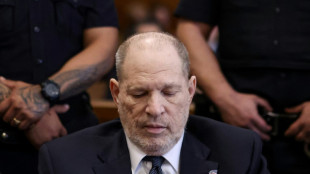 Weinstein sex attack accuser tells court he 'humiliated' her
Weinstein sex attack accuser tells court he 'humiliated' her
-
France accuses Russian military intelligence over cyberattacks

-
 Global stocks mostly rise as Trump grants auto tariff relief
Global stocks mostly rise as Trump grants auto tariff relief
-
Grand Vietnam parade 50 years after the fall of Saigon
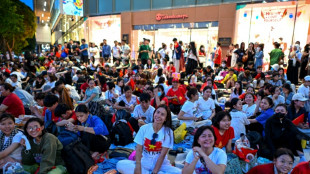
-
 Trump fires ex first gentleman Emhoff from Holocaust board
Trump fires ex first gentleman Emhoff from Holocaust board
-
PSG 'not getting carried away' despite holding edge against Arsenal

-
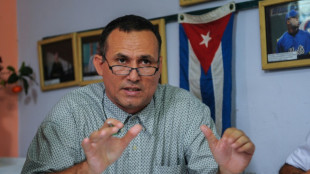 Cuban dissidents detained after court revokes parole
Cuban dissidents detained after court revokes parole
-
Sweden stunned by new deadly gun attack
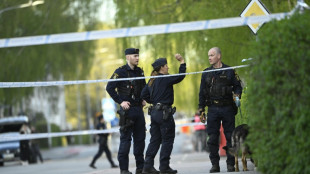
-
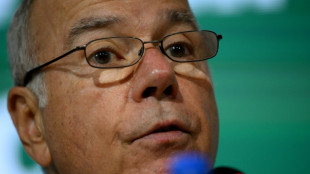 BRICS blast 'resurgence of protectionism' in Trump era
BRICS blast 'resurgence of protectionism' in Trump era
-
Trump tempers auto tariffs, winning cautious praise from industry
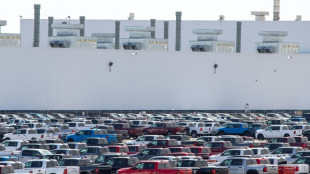
-
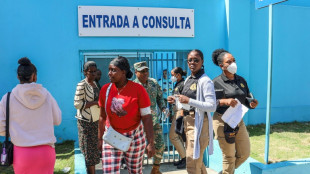 'Cruel measure': Dominican crackdown on Haitian hospitals
'Cruel measure': Dominican crackdown on Haitian hospitals
-
'It's only half-time': Defiant Raya says Arsenal can overturn PSG deficit

-
 Dembele sinks Arsenal as PSG seize edge in Champions League semi-final
Dembele sinks Arsenal as PSG seize edge in Champions League semi-final
-
Les Kiss to take over Wallabies coach role from mid-2026

-
 Real Madrid's Rudiger, Mendy and Alaba out injured until end of season
Real Madrid's Rudiger, Mendy and Alaba out injured until end of season
-
US threatens to quit Russia-Ukraine effort unless 'concrete proposals'
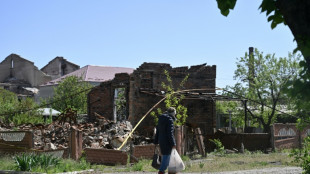
-
 Meta releases standalone AI app, competing with ChatGPT
Meta releases standalone AI app, competing with ChatGPT
-
Zverev crashes as Swiatek scrapes into Madrid Open quarter-finals

-
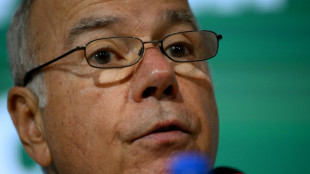 BRICS members blast rise of 'trade protectionism'
BRICS members blast rise of 'trade protectionism'
-
Trump praises Bezos as Amazon denies plan to display tariff cost
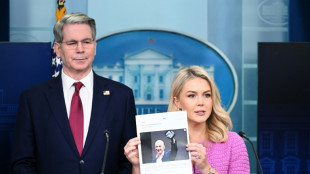
-
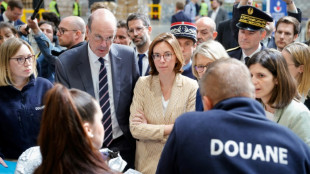 France to tax small parcels from China amid tariff fallout fears
France to tax small parcels from China amid tariff fallout fears
-
Hong Kong releases former opposition lawmakers jailed for subversion
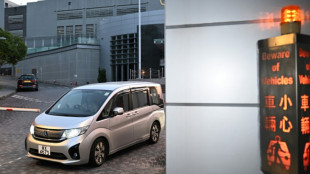
-
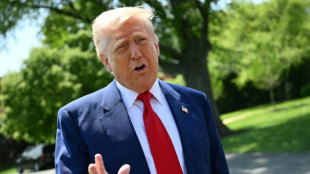 Trump celebrates tumultuous 100 days in office
Trump celebrates tumultuous 100 days in office
-
Sweden gun attack leaves three dead
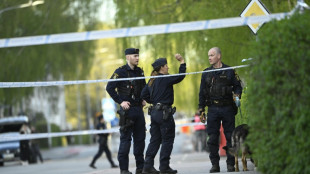
-
 Real Madrid's Rudiger banned for six matches after Copa final red
Real Madrid's Rudiger banned for six matches after Copa final red
-
Firmino, Toney fire Al Ahli into AFC Champions League final

-
 Maximum respect for Barca but no fear: Inter's Inzaghi
Maximum respect for Barca but no fear: Inter's Inzaghi
-
Trump signals relief on auto tariffs as industry awaits details
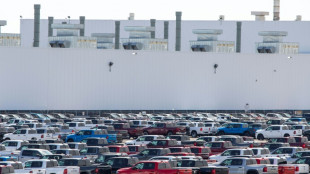
-
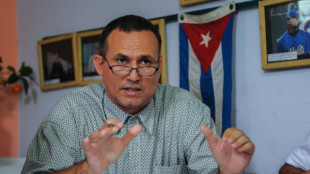 Cuban court revokes parole of two prominent dissidents
Cuban court revokes parole of two prominent dissidents
-
Narine leads from the front as Kolkata trump Delhi in IPL

-
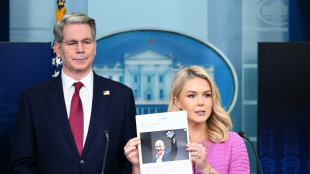 Amazon says never planned to show tariff costs, after White House backlash
Amazon says never planned to show tariff costs, after White House backlash
-
Djokovic to miss Italian Open

-
 Trossard starts for Arsenal in Champions League semi against PSG
Trossard starts for Arsenal in Champions League semi against PSG
-
Sweden shooting kills three: police
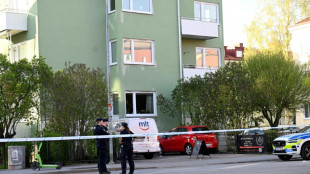

For desperate migrants, hope is in breach at US border wall
Gladys Martinez's voice is almost lost in the crackling midday heat of Arizona as she steps onto US soil.
"We come seeking asylum," she whispers as she thrusts forward pictures she says show her murdered daughter.
Martinez, a Honduran, is one of dozens of people who arrive daily in Yuma, a small city on the Mexican border where there are gaps in the wall that separate the two countries.
She has travelled more than 4,000 kilometers (2500 miles), some of it on foot, from her native Colon, fleeing violence and poverty, desperately hoping she will be given sanctuary in the world's wealthiest country.
She has nothing but the clothes she stands up in and some documents in a small backpack.
"Here are the papers, look! look!" she says, pointing to some grisly photographs that show the lifeless face of a young woman.
"They killed my daughter, they choked her to death with a pillow and a bag," she sobs.
- Wall -
The wall that separates the United States from Mexico crosses dunes and hills as it snakes its way from the Gulf of Mexico to the Pacific Ocean.
Despite the promises of politicians, it is not solid or insurmountable.
In some places it is 30 feet (nine meters) high, but desperate migrants still climb it.
Some of them fall. Some die.
In other places, like in Yuma, there are gaps large enough just to walk through.
US border officers say -- off the record -- a gate should have been built here to allow for official access but work was halted when President Joe Biden took office.
Most of the people who arrive at the wall have come from Central or Southern America.
Many fly to Mexico or Nicaragua and then continue overland, often paying a coyote -- a human trafficker -- to get them there.
The stories they tell of their journeys are all different, but all contain the same phrase: "It is very painful".
- 'We don't like questions' -
On the Mexican side, a few meters from the opening, hardscrabble plants cling to life in shifting sand as the hot desert sun beats down.
Every few minutes, vehicles pull up on the roadside, and migrants spill out, most just carrying a small backpack.
They are guided through the blistering landscape by men and women who melt away as they near the wall.
"Everyone has their own routes here, and no one likes it when one gets in the way of the other," says one man who has paused in the shade of a tree.
He and his companion say vaguely they work in "commerce", but the conversation gets gradually less friendly as it becomes clear they are talking to a reporter.
"We don't like people asking questions here," the older man says.
"If I ask him to make you disappear, he makes you disappear," he says, pointing to his snarling younger colleague.
- 'Mommy, I want to go' -
Back on the US side, border patrol officers offer water to the thirsty migrants, a moment of humanity for people who have seen little of it for weeks or months.
Miguel, from Peru, arrived with his daughters and his wife, who was bleeding from a head wound.
"Someone threw a rock at her, this is her blood," he says, pointing to the bright red stain on her t-shirt as paramedics tend to the injury.
"Mommy, I want to go," cries a young daughter, as she hugs one of the huge steel bars that make up the wall.
"They probably got in someone's way," says a police officer, who asks not to be identified because he is not authorized to speak to the media.
On the ground nearby lie discarded pieces of clothing, half-eaten packets of cookies, plastic bottles, torn airline tickets and scraps of paper with phone numbers for people identified only as "gringo (foreigner) whatsapp" or "cousin Luis."
"Those who are not discovered by the border patrol leave everything they can to continue traveling as light as possible," says the same officer.
Under a health rule imposed by then-president Donald Trump in March 2020, border patrol officers can ignore an application for asylum.
Title 42 allows for the immediate expulsion of anyone not holding a valid visa.
The rule, ostensibly instituted to prevent people with Covid-19 from getting into the country, was supposed to lapse on Monday, but on Friday a judge ruled that it should persist.
For Carlos Escalante Barrera, a 38-year-old Honduran who arrived with his family, the reasons and the rules are unimportant.
"What we want is security," he says.
Border patrol agents don't look at the pictures and the documents he offers.
Instead, they show him the way to a van that will take him for processing and likely expulsion.
A few hundred meters away on the Mexican side of the border, more car loads of migrants are already arriving.
M.Fischer--AMWN